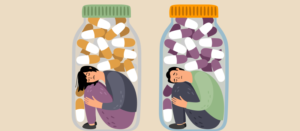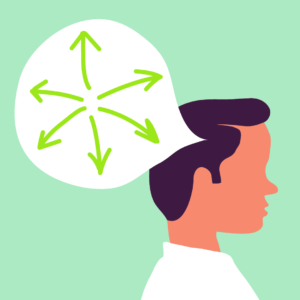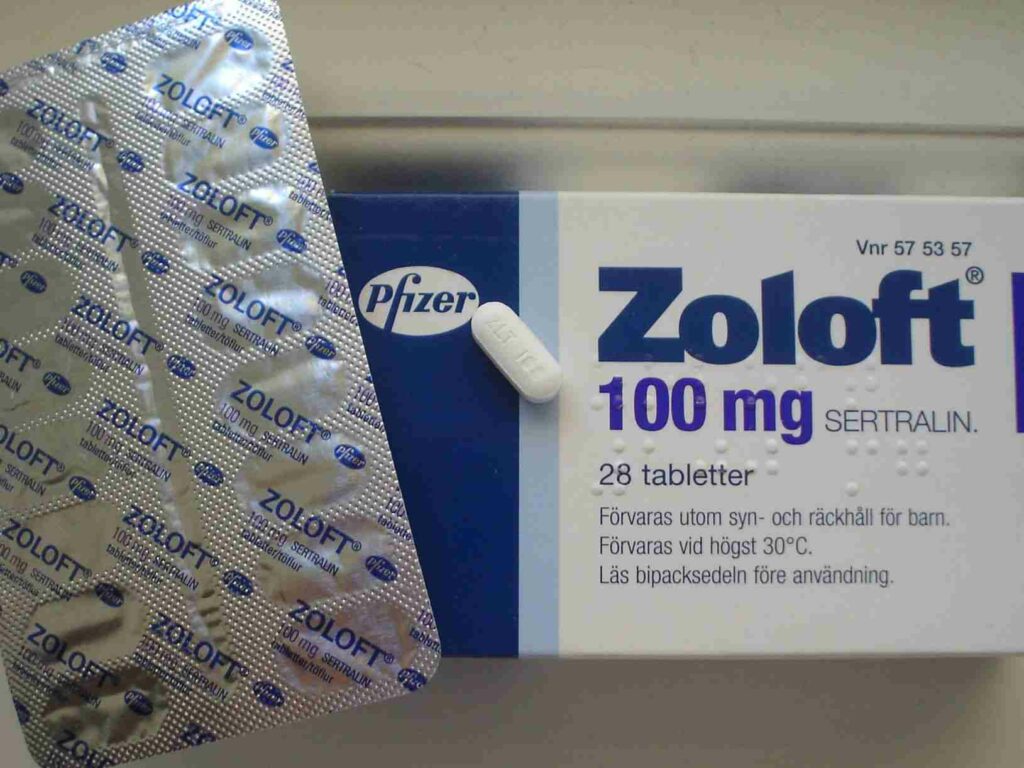Attention Deficit Hyperactivity Disorder (ADHD) is a condition that affects millions of people. It can cause problems with focus, hyperactivity, and impulsiveness. While there are many different treatment options available for ADHD, some people may be hesitant to try medication. Zoloft is a safe antidepressant medication that is effective in treating ADHD. In this blog post, we will discuss the benefits of using Zoloft for ADHD and how it can help improve your quality of life!
Contents
Understanding ADHD
Attention Deficit Hyperactivity Disorder, or ADHD, is one of the most common childhood disorders.
It is a neurological condition that affects a person’s ability to focus and control impulsive behaviors. Symptoms of ADHD can include difficulty paying attention, hyperactivity, and impulsiveness.
What is Zoloft?

While there is no cure for ADHD, there are treatment options that can help manage the symptoms. Medication is one of the most common treatments for ADHD. Zoloft is a medication that is effective in treating ADHD.
Zoloft is a selective serotonin reuptake inhibitor (SSRI). SSRIs are a type of antidepressant that works by increasing levels of serotonin in the brain.
How Does Zoloft Help In ADHD?
Zoloft is a medication that helps to correct the chemical imbalance in the brain. It does so by increasing the levels of serotonin in the brain. Serotonin is a neurotransmitter that plays an important role in mood and emotion. By increasing the levels of serotonin, Zoloft helps to improve mood and reduce impulsivity and hyperactivity.
Zoloft is a safe and effective treatment option for ADHD. It has been approved by the FDA for the treatment of ADHD in children and adolescents. Zoloft is also often used off-label to treat adults with ADHD. It works by correcting the chemical imbalance in the brain and is generally well-tolerated with few side effects.
If you or your child has been diagnosed with ADHD, talk to your doctor about whether Zoloft is right for you.
Can Zoloft Make You Hyperactive?

Zoloft is a common antidepressant that’s been on the market for decades. It’s generally considered safe and effective, but like all medications, it comes with potential side effects. One of the most common questions people ask about Zoloft is whether or not it can make you hyperactive.
The answer to this question isn’t entirely straightforward. In some cases, Zoloft may actually help to improve focus and concentration in people with ADHD. However, it’s also possible that the medication could make symptoms worse. If you’re considering taking Zoloft for ADHD, it’s important to talk to your doctor about the potential risks and benefits.
Side Effects
Zoloft may cause some side effects, but most are mild and go away after a few weeks of treatment. The most common side effects include:
- Nausea
- Headaches
- Dry mouth
- Drowsiness
- Insomnia
- Agitation or jitteriness
- Anxiety
- Diarrhea
- Upset stomach
- Weight changes (gain or loss)
- Sexual side effects
Zoloft is generally a well-tolerated medication with a low risk of serious side effects. If you experience any of the above side effects, talk to your doctor or pharmacist. They may be able to recommend ways to reduce them.
It is a safe and effective treatment option for ADHD. It has a low risk of serious side effects and can be taken long-term. If you’re looking for an alternative to stimulant medications, talk to your doctor about Zoloft.
Precautions While Taking Zoloft
While Zoloft is generally considered a safe medication, there are some precautions to be aware of.
- First, Zoloft may interact with other medications. Be sure to tell your doctor about all the medications you’re taking, including over-the-counter drugs and supplements.
- Second, Zoloft may cause side effects in some people. The most common side effects are nausea, diarrhea, constipation, headache, and dry mouth. If you experience any of these side effects, talk to your doctor.
- Third, Zoloft may not be suitable for people with certain medical conditions. Be sure to tell your doctor about any medical conditions you have.
- Fourth, Zoloft may not be suitable for pregnant or breastfeeding women. If you are pregnant or breastfeeding, talk to your doctor before taking Zoloft.
If you have any concerns about taking Zoloft, talk to your doctor. They will be able to advise you on whether Zoloft is right for you. While Zoloft is considered safe for most people, there are some precautions to be aware of. Zoloft may interact with other medications, so it’s important to tell your doctor about all the medications you’re taking.
Dosage

Zoloft is considered a safe and effective treatment for attention-deficit/hyperactivity disorder (ADHD). It works by increasing levels of serotonin in the brain, which can improve mood and focus. Zoloft is usually started at a low dose and then increased gradually over time.
The usual starting dose of Zoloft for ADHD is 25 mg once daily. Your doctor may increase your dose gradually over time. The maximum recommended dose is 200 mg per day.
- Tablets: 25 mg, 50 mg, 100 mg
- Capsules: 25 mg, 50 mg
- Liquid concentrate: 20 mg/mL
If patients want to stop taking Zoloft or lower their dosage, they should work closely with a medical professional to slowly taper off the medication. Sudden stoppage of Zoloft can lead to severe symptoms like anxiety, irritability, changes in mood, feelings of restlessness, difficulty sleeping, headache, sweating, and nausea.
If you have any questions or concerns about taking Zoloft for ADHD, talk to your doctor. They can help you weigh the risks and benefits of this medication and decide if it’s right for you
Conclusion
It may be concluded that Zoloft ADHD is a safe and effective treatment option for attention deficit hyperactivity disorder. This is based on the studies that have been conducted which have shown promising results. Zoloft may be especially beneficial for those who do not respond well to other treatments or who experience side effects from other medications. While more research is needed, Zoloft appears to be a promising option for treating ADHD.
If you or your child has been diagnosed with ADHD, talk to a doctor about whether Zoloft may be right for you.
For further information and suggestions, please contact Therapy Mantra. We have a team of expert therapists and psychiatrists that can help you overcome this problem. Get in touch with us right away to learn more about our services. You may also make an online therapy session or download our free Android or iOS app.


